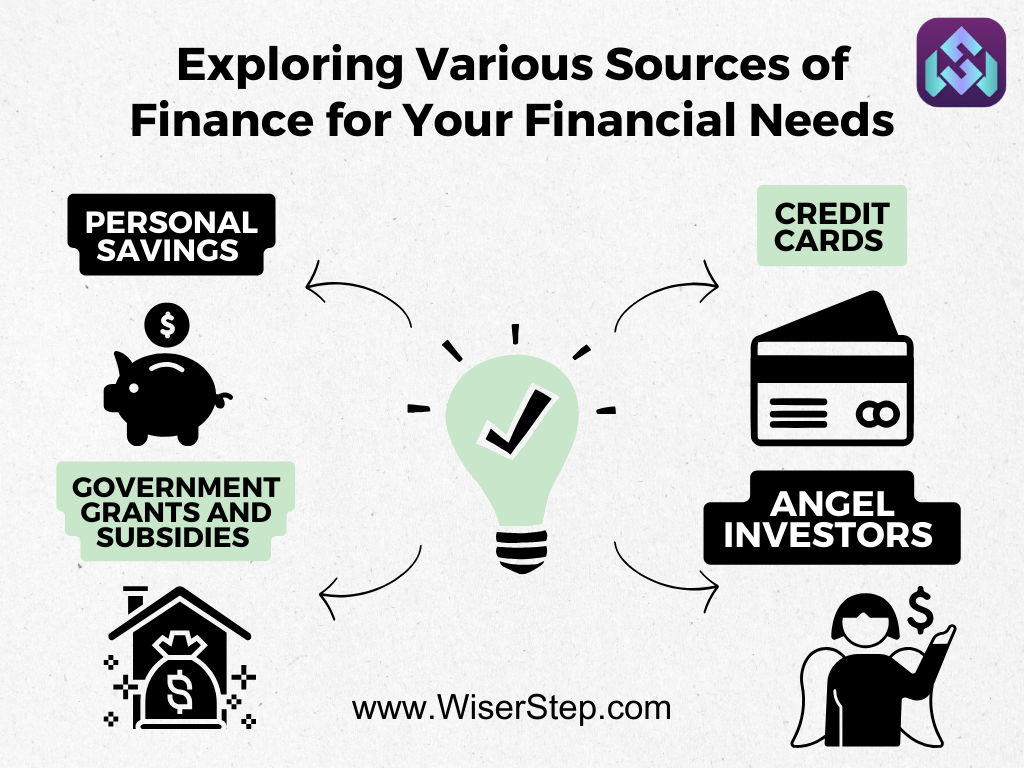In today’s dynamic financial landscape, securing the right source of finance is crucial for individuals, businesses, and governments alike. Whether you’re starting a new venture, expanding an existing business, or simply managing your personal finances, understanding the diverse sources of finance is essential. In this blog, we will explore various finance sources, ranging from traditional to modern, and discuss their advantages and disadvantages.
Personal Savings
One of the most fundamental sources of finance is personal savings. This includes the money you have saved over time, whether in a savings account, certificates of deposit (CDs), or other forms of liquid assets. Using personal savings eliminates the need for debt and interest payments but may limit your capital availability.
Bank Loans
Banks offer a variety of loans, including personal loans, mortgages, and business loans. These loans come with interest rates and repayment terms, making them accessible options for financing various needs. However, eligibility and interest rates depend on your creditworthiness.
Credit Cards
Credit cards provide a convenient source of short-term finance. They allow you to make purchases and access credit up to a predetermined limit. While convenient, credit cards often come with high-interest rates, making them expensive if not managed responsibly.
Venture Capital
Entrepreneurs seeking to start or expand a business often turn to venture capital firms. In exchange for funding, venture capitalists typically receive equity in the company. This source of finance is suitable for high-growth startups but may involve giving up a portion of ownership and control.
Angel Investors
Angel investors are individuals who provide capital to startups in exchange for equity or convertible debt. They often bring industry expertise and valuable connections to the table, making them attractive partners for early-stage companies.
Crowdfunding
The rise of crowdfunding platforms has enabled individuals and businesses to raise funds from a broad audience. This source of finance allows for creative and unconventional fundraising but may require a compelling pitch to attract backers.
Government Grants and Subsidies
Governments offer grants, subsidies, and incentives to support specific industries, research projects, or social initiatives. These funds can be a valuable source of non-repayable finance, particularly for businesses and research institutions.
Bonds
Bonds are debt securities issued by governments, corporations, or other entities. Investors purchase bonds, essentially lending money to the issuer in exchange for periodic interest payments and the return of the principal at maturity. Bonds are relatively stable but come with varying degrees of risk depending on the issuer’s creditworthiness.
Peer-to-Peer (P2P) Lending
P2P lending platforms connect borrowers with individual investors. Borrowers receive loans from multiple investors, while investors earn interest on their loans. P2P lending provides an alternative to traditional banks but may involve higher interest rates for borrowers.
The diverse array of finance sources available today provides options to suit various financial needs and circumstances. Each source comes with its own advantages and disadvantages, and the choice should align with your specific goals, risk tolerance, and financial situation. Whether you’re an entrepreneur seeking startup capital, a homeowner looking for a mortgage, or an individual planning for your future, understanding these finance sources will empower you to make informed financial decisions and secure the funding you need

